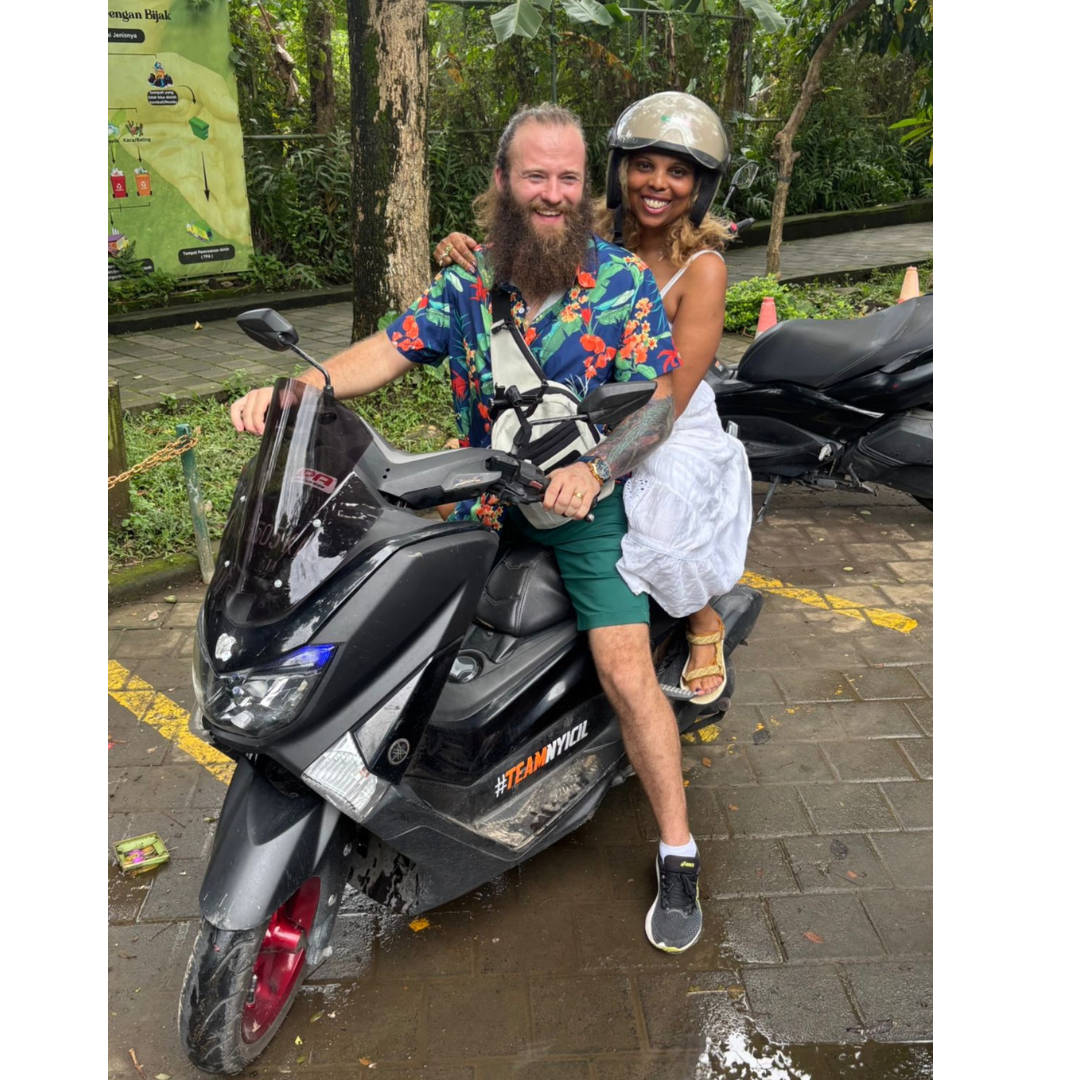Finding Love with HIV: How Yoga and Self Discovery Transformed My Life

Divorced, with three children and a full-time job, the prospect of dating filled me with a mix of dread, anxiety, fear, and excitement all at once.
The fear of rejection and heartbreak kept my barriers firmly in place. I dabbled in various dating apps, meeting people both living with and without HIV. The dating pool felt incredibly limited, and the thought of disclosing my status to someone who wasn’t HIV-positive was terrifying.
Dating those who weren’t living with HIV, however, gave me the chance to vet potential partners carefully. I took my time, ensuring they were truly someone I wanted to invest in before disclosing something so deeply personal.
I remember thinking to myself that there was a very real possibility I’d never find a partner and might spend the rest of my life alone. Dating as a single mum is hard enough—throw in three kids, a divorce, and living with HIV, and it felt almost impossible.
So, I decided to date myself. I took myself out for delicious meals, visited the theatre and art galleries, and immersed myself in yoga, the gym, and meditation retreats.
I still went on dates, but the experience often left me exhausted. I struggled to connect or find that elusive spark. Instead, I threw myself into new activities—art classes, African drumming, and various courses.
Then one day, I decided to put in real effort to find someone I genuinely connected with. I wanted to try something different, something beyond the online world.
That’s when I stumbled upon a Tantra speed dating event in central London. Intrigued, I decided to give it a go. The room was filled with people who led yogic or spiritual lifestyles. That night, I met Adrian.
We connected instantly. A few days later, he invited me for lunch, and the conversation flowed effortlessly. We were both dedicated to yoga, both vegan, and both seeking a committed, spiritual partnership. We had read the same books, loved the same music, shared a similar sense of humour, and were both neurodivergent. More than anything, we had the same life goals.
During our first date, i told him i was living with HIV and explained that i am on medication which meant that i cannot pass HIV onto him.
As our relationship deepened, I discovered that Adrian and I shared the same love language: physical touch.
If you haven’t heard of love languages before, here’s a quick summary:
Dr Gary Chapman introduced the concept of the five love languages in his book The 5 Love Languages: The Secret to Love That Lasts. Understanding your own and your partner’s love language can significantly improve communication and strengthen relationships.
Words of Affirmation – Expressing love through verbal encouragement, compliments, and appreciation.
Example: “I love you,” “You mean so much to me,” “I’m proud of you.”Acts of Service – Showing love by doing things that make life easier for the other person.
Example: Cooking a meal, running errands, helping with chores.Receiving Gifts – Feeling loved through thoughtful presents that show effort and care.
Example: Surprise flowers, a meaningful handwritten note, a special gift.Quality Time – Valuing undivided attention, deep conversations, and shared experiences.
Example: Date nights, road trips, meaningful conversations.Physical Touch – Expressing love through physical closeness and affection.
Example: Holding hands, cuddling, kisses, playful touch.
For both Adrian and me, our primary love language was physical touch. We were constantly holding hands, unafraid of public displays of affection, always playful, always close. For the first time in my life, I felt truly seen, understood, and deeply loved.
Of course, our relationship wasn’t without its challenges. I am 20 years older than Adrian. I am Black; he is white. In the beginning, fear crept into my mind: What will people say?
HIV had kept me locked in fear for over a decade, constantly worrying about stigma and judgement. But I reminded myself of everything I had learned through yoga, meditation, and mindfulness: Stay present.
The strength of our love outweighed any fear of what others might think. I refused to bring past trauma into our relationship, stopped fretting about the future, and took each day as it came.
We got married 5 years later and honeymooned in Bali.
The honeymoon period is well and truly over!
We argue over silly things, we trigger each other, but what keeps us together is our shared sense of humour, deep communication, and the willingness to be vulnerable with each other.
Being neurodivergent, we’ve had to take time to understand each other’s tendencies. We work on taking responsibility for our own needs rather than blaming each other if a need isn’t met. And through it all, our primary love language—physical touch—remains the golden thread that binds us together.
Love, trust, and partnership don’t come easily, but when they do, they are worth every single challenge.
Practising Yoga helped me to stay present and open to love whilst living with HIV
Louise Vallace is the Founder and CEO of Aunty Lou’s House Limited, a vibrant platform dedicated to supporting individuals living with HIV and challenging societal stigma.
She hosts the inspiring podcast “Aunty Lou’s Hour”, where she interviews people from around the world about their HIV journey. She also goes onto the streets and talks to the public directly about HIV to open up a public dialogue about about HIV.
Beyond her HIV awareness Louise is a certified Yoga Teacher and Intersection Coach, blending mindfulness and inclusivity into her practice. She is a proud neurodivergent and follows a plant based diet.
Find out more about Aunty Lous House or for more social content you can follow Aunty Lou’s House on Instagram You Tube, TicTok, Facebook and LinkedIn